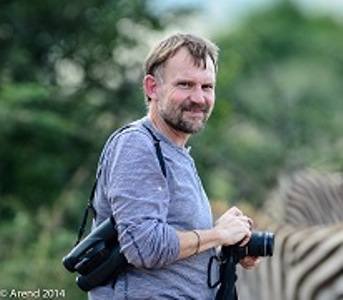November 2017
The criminals perpetrating these crimes are often connected to organised crime groups, and may be committing many other types of crime against people and their property.
Yet in England and Wales, central collation of data on wildlife crime is absent, hampering law enforcement efforts and rendering the accurate identification of trends, prioritisation of enforcement activities and allocation of resources impossible.
That’s the conclusion of our new study, The Recording of Wildlife Crime in England and Wales – Reviewing the effectiveness of current practices, launched at the annual Wildlife Enforcers Conference in Leamington Spa on 26 November.
The study highlights the scale of wildlife crime across England and Wales using data collected by a number of Link member NGOs. More than 4,000 incidents of badger, bat and raptor persecution, criminal use of pesticides, and illegal trade in endangered species, were collected over the period 2010-2015. This snapshot gives some idea of the scale of the problem, although it likely significantly underestimates the total level of wildlife crime, as NGO data collection is limited to species and areas of interest and the methods of data collation differ between groups.
Currently, the Home Office only collects data on a few specific types of wildlife crime through its ‘Counting Rules’, and lumps them all together under a single code making it impossible to identify trends. Moreover, several crimes prioritised by the Wildlife Crime Conservation Advisory Group, including bat and raptor persecution and theft of freshwater pearl mussels, and policing priorities such as badger persecution and poaching, are not included in the Counting Rules.
By contrast, different types of wildlife crimes are officially recorded under a number of different codes in Scotland, and the Scottish Government has been using these and other data to compile annual wildlife crime reports and provide monthly intelligence and analytical reports to the police and enforcement agencies.
Our new report calls on the Home Office to make all wildlife crime ‘recordable’ and identifiable through the creation of several specific Codes, removing ambiguity and confusion over which crimes should be recorded. The report also recommends the production of an annual crime report identifying trends and resource priorities; a review of penalties for convicted wildlife criminals; a greater role for the multi-stakeholder Partnership for Action Against Wildlife Crime (PAW) in setting priorities, and increased training for police call handlers and officers on wildlife crime.
The recommendations were made with strong support from wildlife crime officers, enforcement bodies and other stakeholders interviewed for the report, who overwhelmingly agreed that while measuring crime is a relatively complex process, the benefits far outweigh any resource or financial cost, and that without accurate and consistent assessment of wildlife crime, decision makers are left in the dark.
The UK has a well-earned reputation for championing action on wildlife crime internationally and will host the 2018 international conference on illegal wildlife trade. If we are to retain this reputation, we must apply the same commitment to combating wildlife crime here at home. While the level of crime isn’t being properly assessed, the effective prioritisation of enforcement efforts and allocation of associated resources are being severely hampered.
We are currently seeking meetings with the Home Office to discuss the report and our recommendations.
Mark Jones
Associate Director, Multilateral Environmental Agreements & UK Wildlife
Born Free Foundation
Find Mark and Born Free on twitter @fishvetmj, @BornFreeFDN
The opinions expressed in this blog are the author’s and not necessarily those of the wider Link membership.




Latest Blog Posts